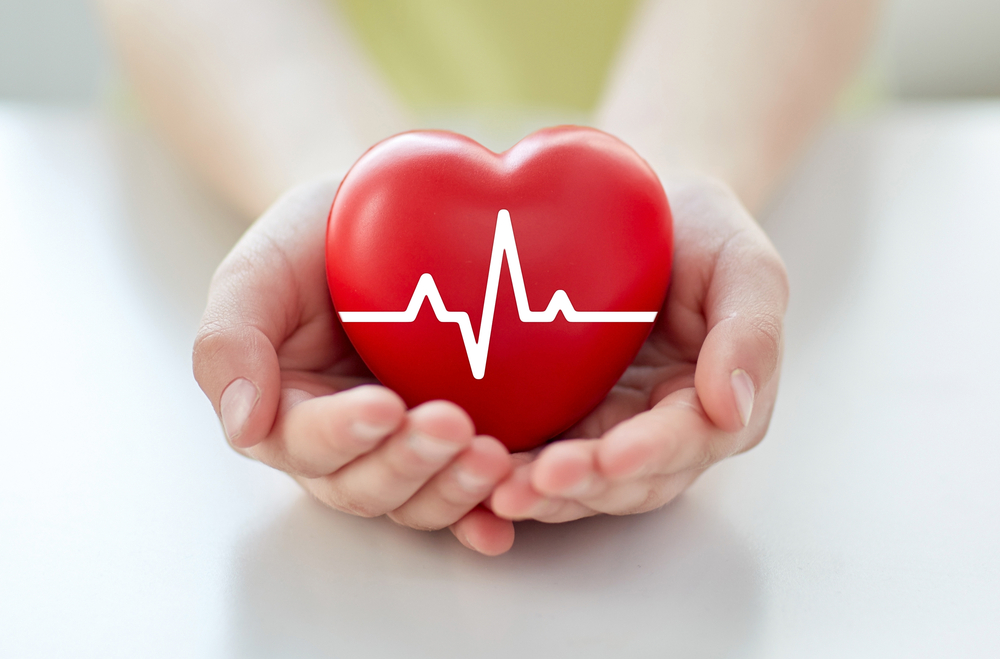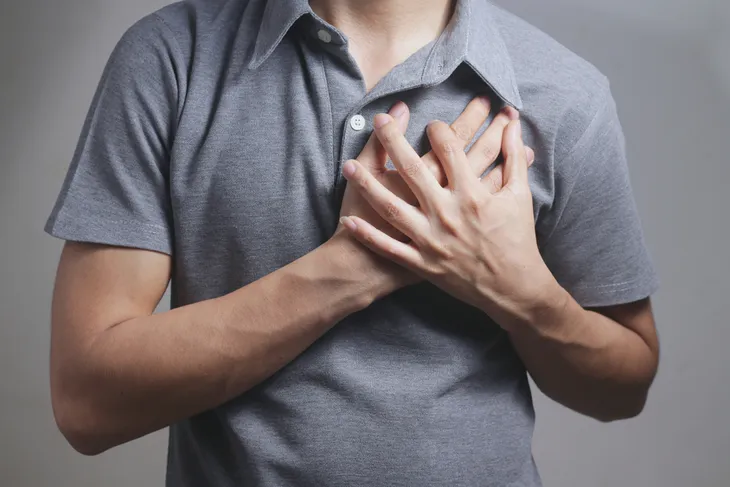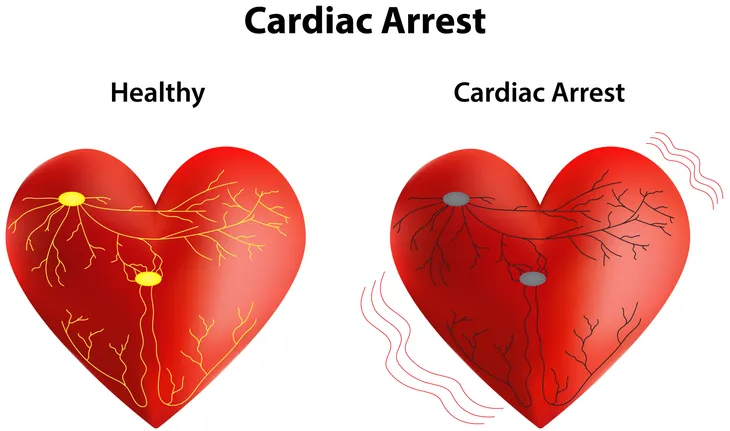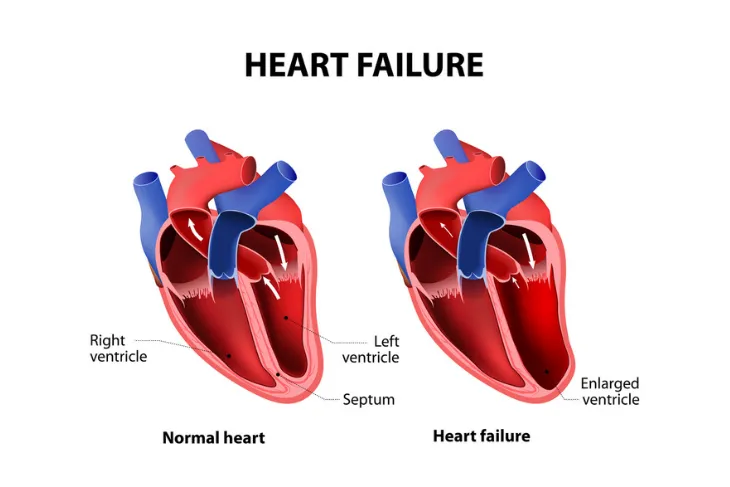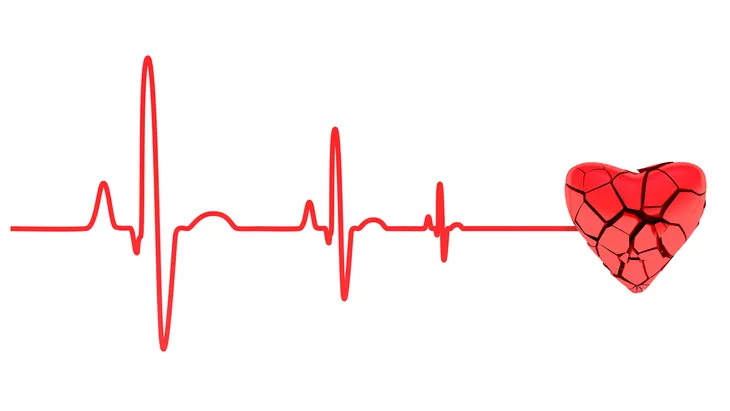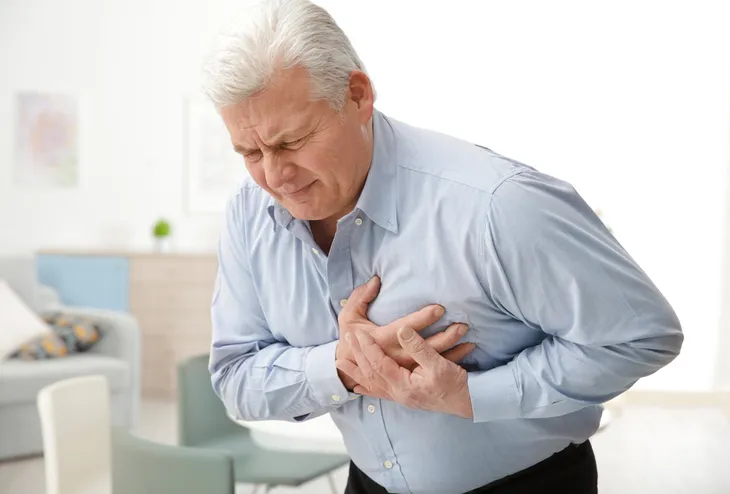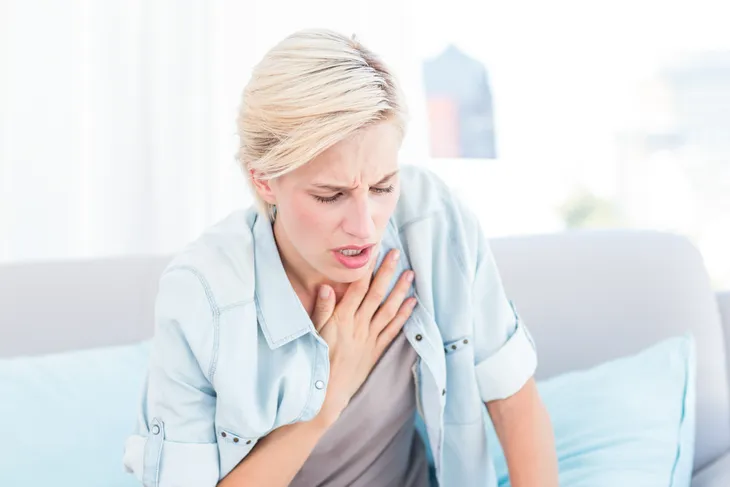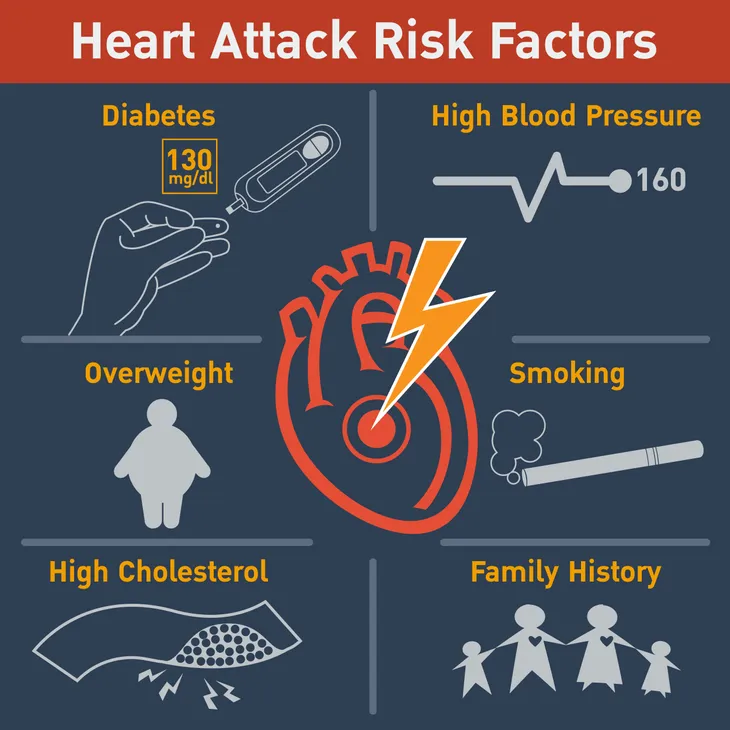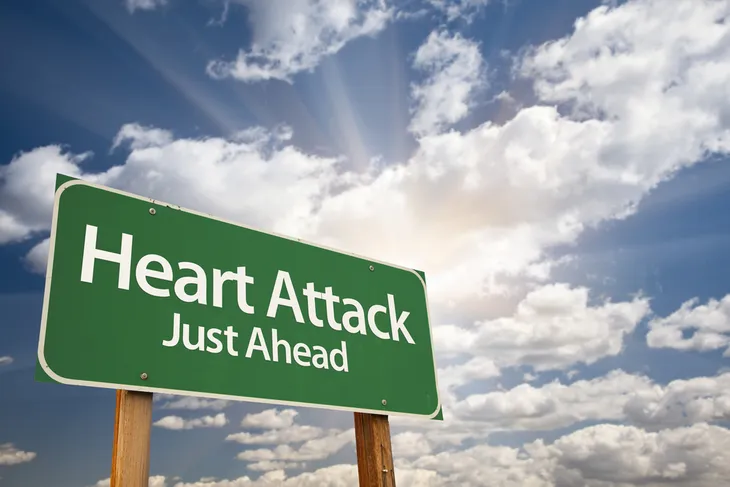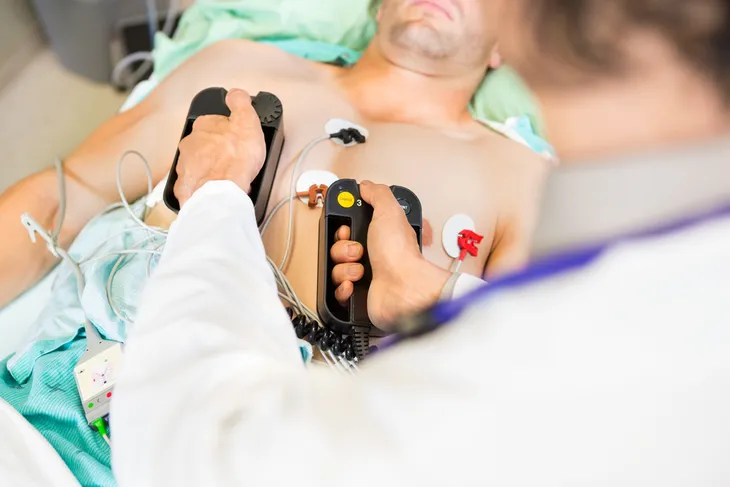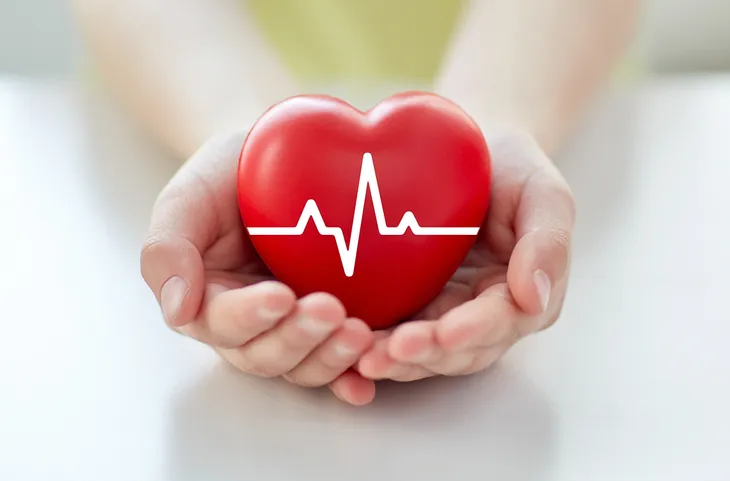You’ll often hear the terms heart attack and cardiac arrest used interchangeably, but in reality, they aren’t the same thing. The causes and symptoms differ for various types of heart episodes.
Knowing the difference could be an important factor in how you react and how medical professionals approach the immediate problem. Here are 12 things that separate cardiac arrest, heart attack, and heart failure…
Characteristics of a Heart Attack
First, we should learn what each of these terms actually mean. A heart attack clinically referred to as a myocardial infarction [MI]) happens when an artery that carries oxygen-rich blood to a section of the heart is blocked, notes the American Heart Association.
The blockage will cause that particular section of the heart to malfunction and die if it’s not dealt with quickly. The longer it takes to open up the blockage, the greater the damage. The heart usually continues to beat throughout a heart attack.
What to Know About Cardiac Arrest
Unlike a heart attack, cardiac arrest is just like the name suggests, the heart stops pumping completely (or has a dangerous rhythm), according to Self.com.
A cardiac arrest can actually start as a heart attack, adds the source. The symptoms and how they’re treated differ as well, which we’ll get to later…
So What is Heart Failure Then?
WebMD explains the “failure” isn’t that your heart has stopped, but rather that your heart has stopped doing its job efficiently. “What’s really going on is that your heart can’t pump blood as well anymore,” adds the source.
There are actually two types of heart failure: systolic and diastolic notes the source. Systolic failure is when your heart becomes too weak to pump properly, and diastolic failure refers to when the main ventricle can’t relax properly, which in turn lowers blood volume in the heart and increases blood pressure in the lungs.
The Triggers Differ
A heart attack is caused by a physical blockage in a coronary artery, usually a blood clot (or fatty buildup), notes ACLS Medical Training. Meanwhile, a cardiac arrest is the result of a “severely abnormal heart rhythm,” adds the source.
It notes that electrical impulses are responsible for causing the heart to contract, and cardiac arrest happens when there’s an interruption in the electrical conduction system of the heart. Heart failure can also be caused by damage from a heart attack, diabetes, or even thyroid diseases.
What a Heart Attack Feels Like
If you’re experiencing a heart attack, expect to feel pressure, tightness, and/or pain in your chest and arms that can spread to your arm, neck, or jaw, according to the Mayo Clinic.
Other symptoms of a heart attack include nausea, heartburn, abdominal pain, shortness of breath, fatigue, and even sudden dizziness, adds the source. It notes that symptoms may vary from patient to patient, and while some heart attacks strike suddenly, others have “warning signs” days or weeks in advance.
Cardiac Arrest Often Comes on Fast
While there could be some physical hints leading up to cardiac arrest, generally it is sudden and requires immediate life-saving interventions. The first sign of cardiac arrest is often fainting, according to eMedicineHealth.com.
Other telltale signs are the lack of a pulse, although others may actually have a racing heartbeat, adds the source. Symptoms can also include dizziness, shortness of breath, or vomiting before the actual heart episode occurs. “Many individuals have no signs whatsoever and simply collapse,” says the source.
Signs of Heart Failure
This is generally more gradual than a heart attack or cardiac arrest, but you’ll still experience a range of symptoms. The Mayo Clinic explains heart failure can be a chronic condition or be acute (sudden).
The telltale signs of heart failure include shortness of breath following exertion (or even when you lie down), fatigue, swelling in your legs and feet, persistent wheezing, rapid weight gain (from fluid retention), nausea, and even difficulty concentrating or staying alert.
What are the Risk Factors for Heart Troubles?
The factors for heart attack, heart failure, and cardiac arrest can differ. For example, a heart attack is more common among men age 45 to 55, so age and gender are both risk factors. Smoking, obesity, and high blood pressure are also risk factors.
Meanwhile, alcohol abuse can contribute to heart failure, as can coronary artery disease and viral infections that lead to stiffening of the heart muscle. Cardiac arrest can be brought on by some of the same factors (smoking and high blood pressure) but can also be caused by lack of exercise, high cholesterol, or a previous heart attack, notes the Mayo Clinic.
The Onset of Heart Episodes
Time is of the essence for heart attacks. WebMD explains heart attacks happen suddenly and can cut off blood flow to essential areas, which can be fatal. Heart failure happens more gradually as the heart muscles weaken and lose efficiency (sometimes as the result of a previous heart attack).
Meanwhile, cardiac arrest is very sudden, and it can come out of nowhere without the telltale warning chest pain and tightness associated with a heart attack. It is often referred to as “sudden cardiac arrest,” and for good reason.
Treatments Differ for Each Type
As the onset for each type of these heart problems is different, so is the approach in trying to fix them. For heart attacks, taking aspirin when symptoms become prominent could help buy you time on your way to the hospital. The key is to restore blood flow to the heart as quickly as possible, which could involve thrombolysis (injecting clot-dissolving agents into the blood) or emergency surgery.
Meanwhile, if a patient collapses from cardiac arrest, a defibrillator is the most effective first line of treatment, notes eMedicineHealth.com. The idea is that an electric shock from the defibrillator “resets” the heart’s proper rhythm. For heart failure, treatments focus on the underlying cause whether it’s high blood pressure or diabetes. Changes to lifestyle and diet are usually in order to see improvements.
Heart Attack and Cardiac Arrest: The Link
The American Heart Association explains that there’s a link between these two “distinct heart conditions.” More specifically, it’s the fact that sudden cardiac arrest can be the result of a heart attack, happening soon after the attack or during recovery.
“Most heart attacks do not lead to sudden cardiac arrest. But when sudden cardiac arrest occurs, heart attack is a common cause,” adds the source. Sudden cardiac arrest can also be linked to complications from heart failure.
How to Prevent Heart Troubles
The key to preventing serious health episodes relating to your heart are by following the guidelines for keeping heart disease at bay – although there are some factors such as age, gender, family history and even ethnicity that may raise your risk regardless.
MedicinePlus recommends a number of strategies to keep your heart functioning at optimal levels. They include controlling your blood pressure (get it checked regularly), keeping cholesterol and triglycerides in check that can clog arteries, getting regular exercise, limiting alcohol (no more than 2-drinks a day for men, 1-for women), ditching the cigarettes, and learning ways to manage stress.
